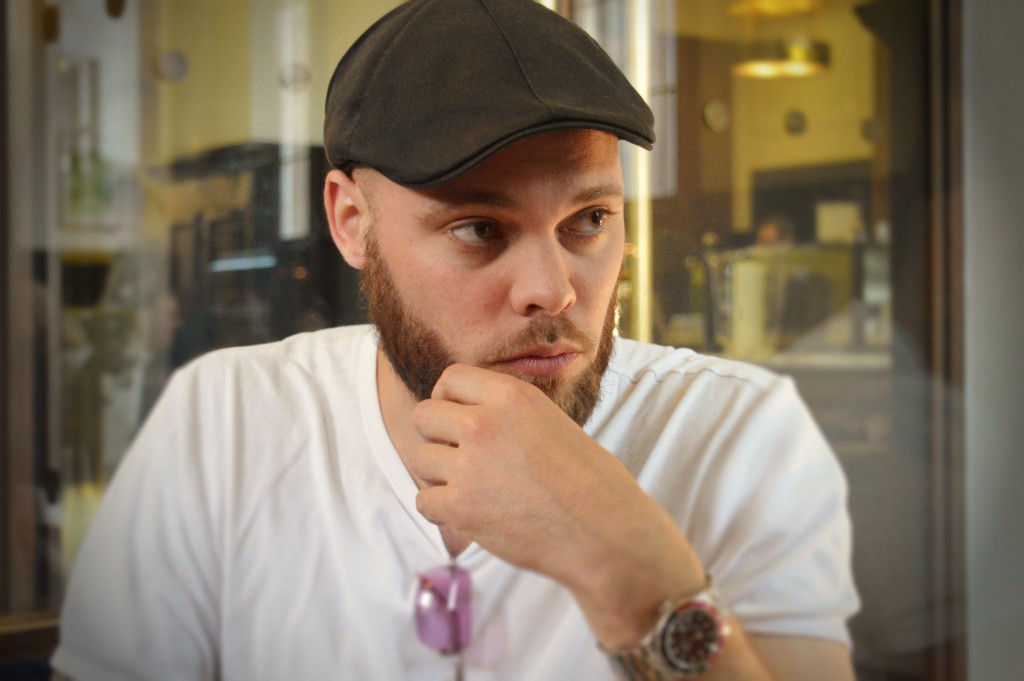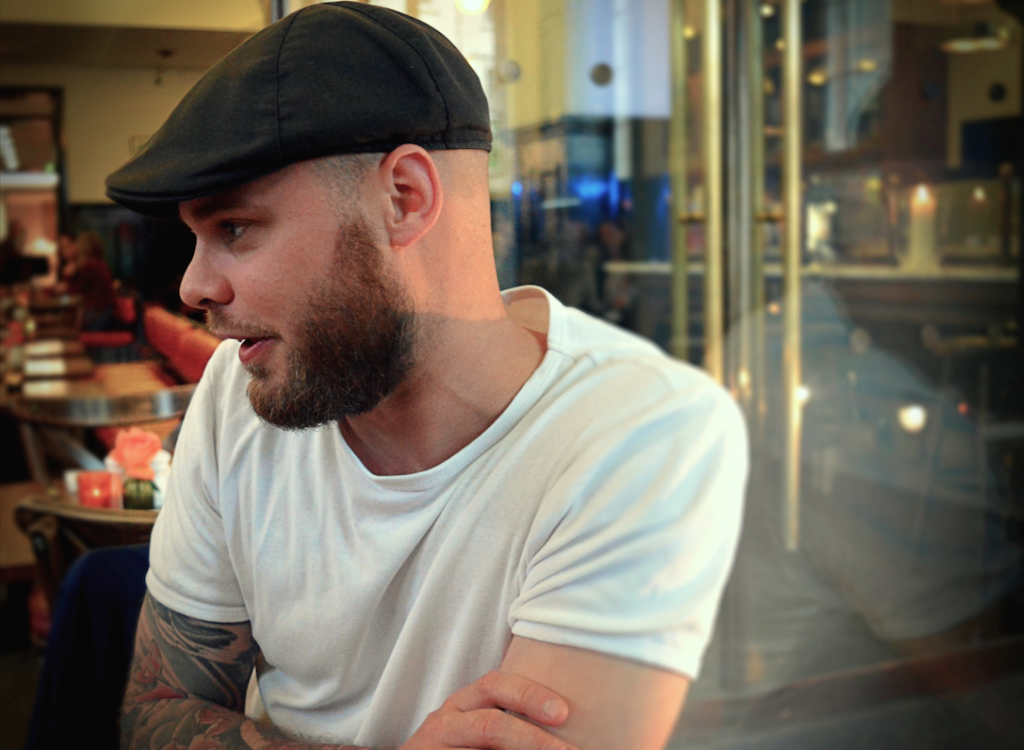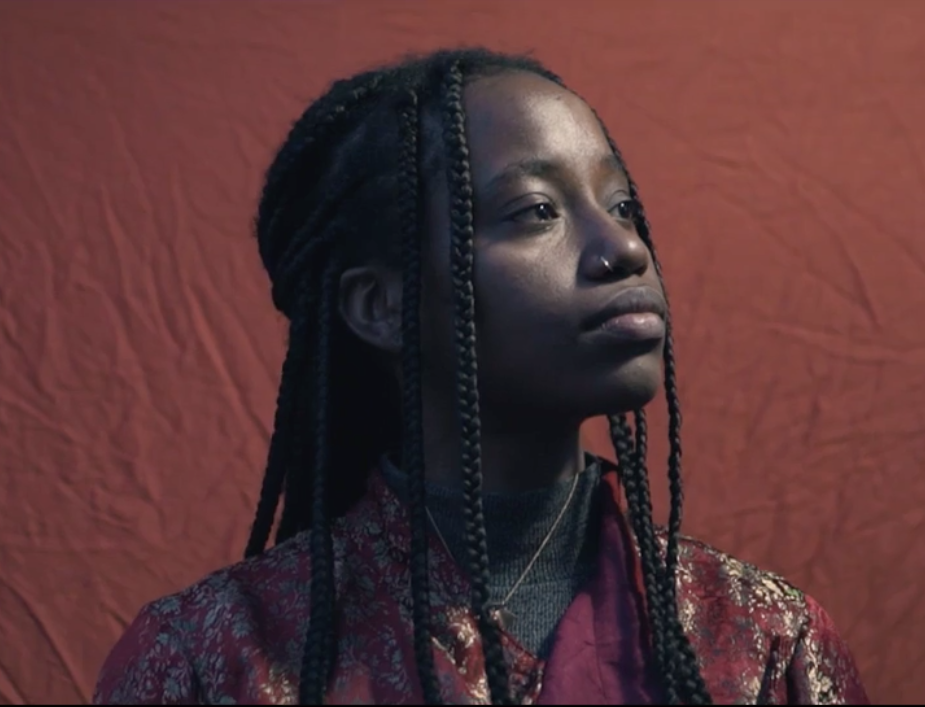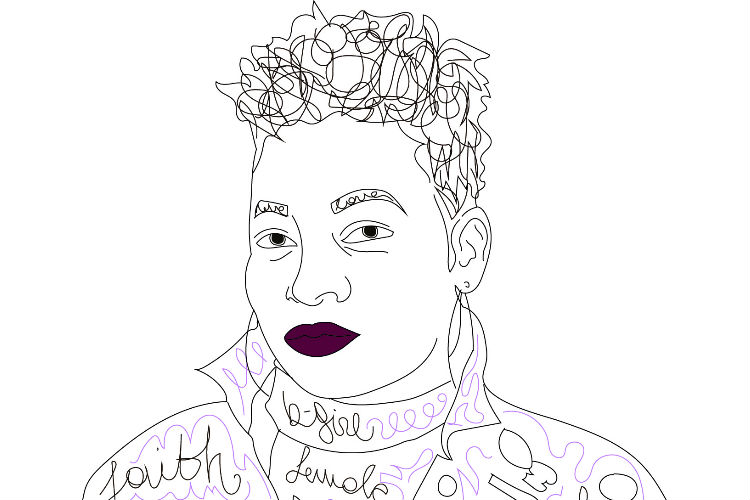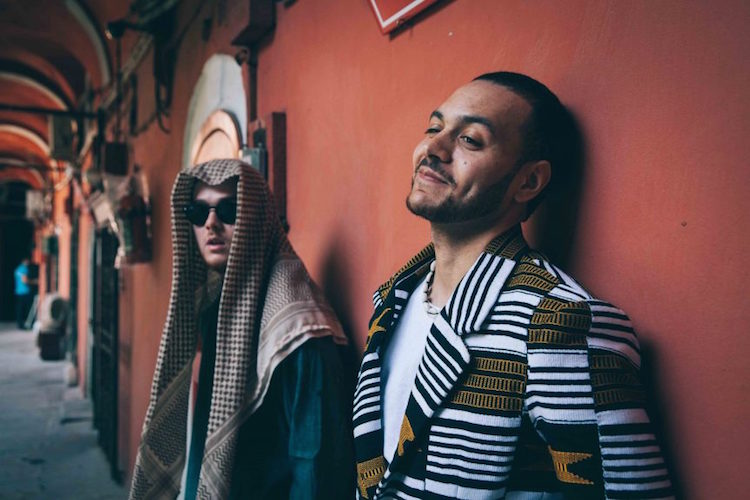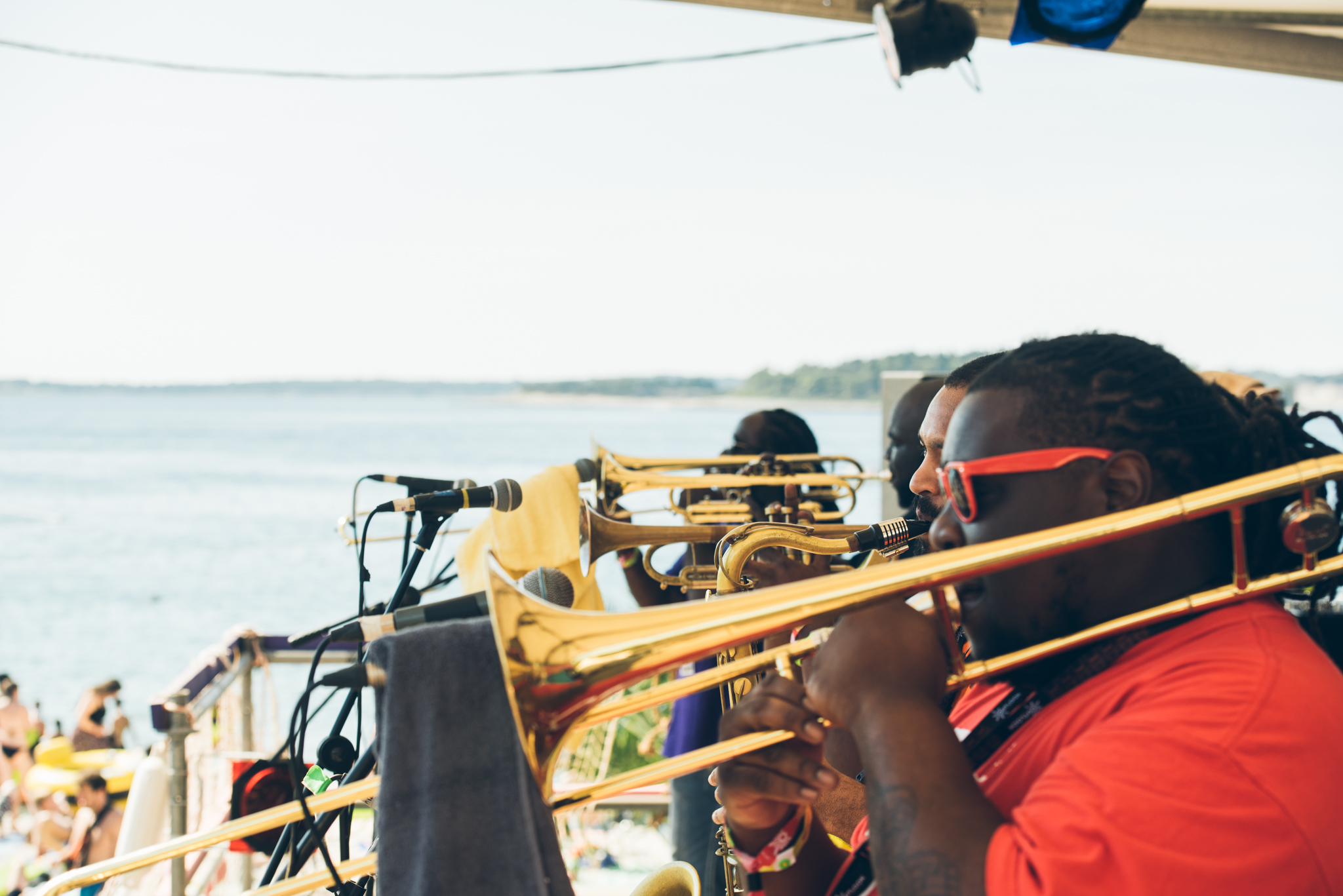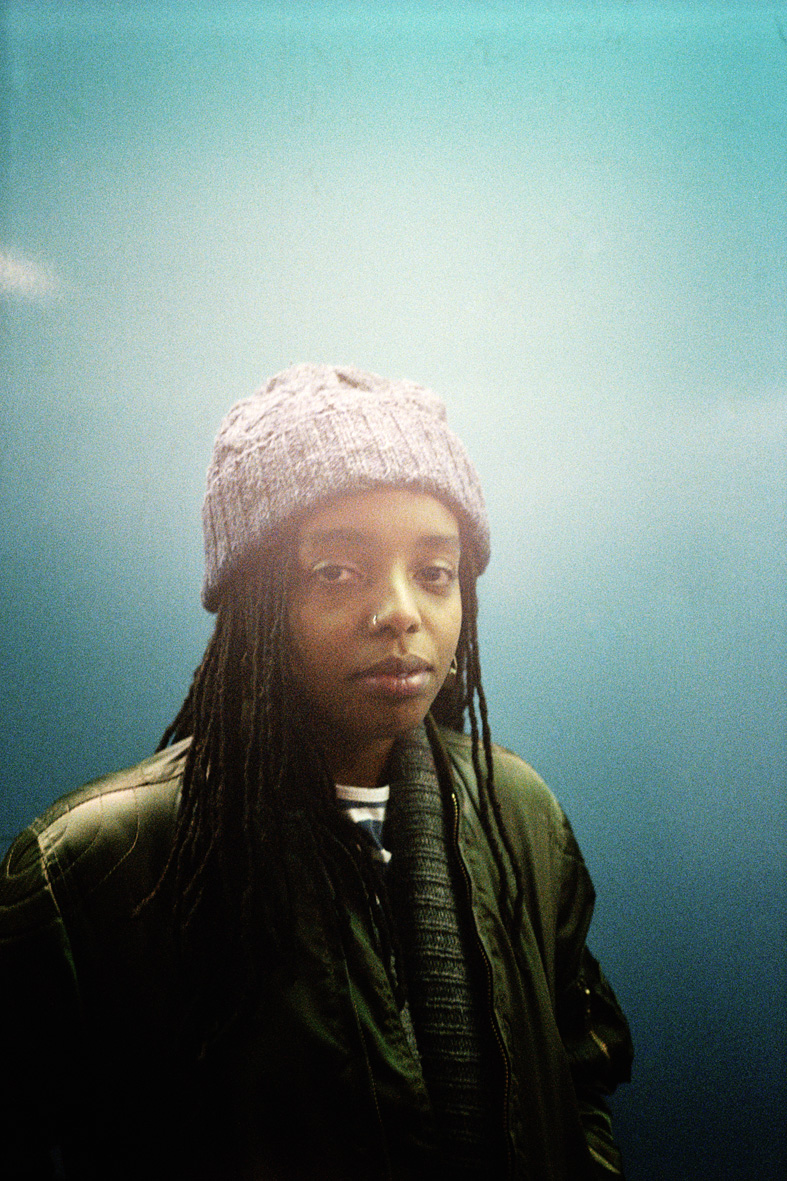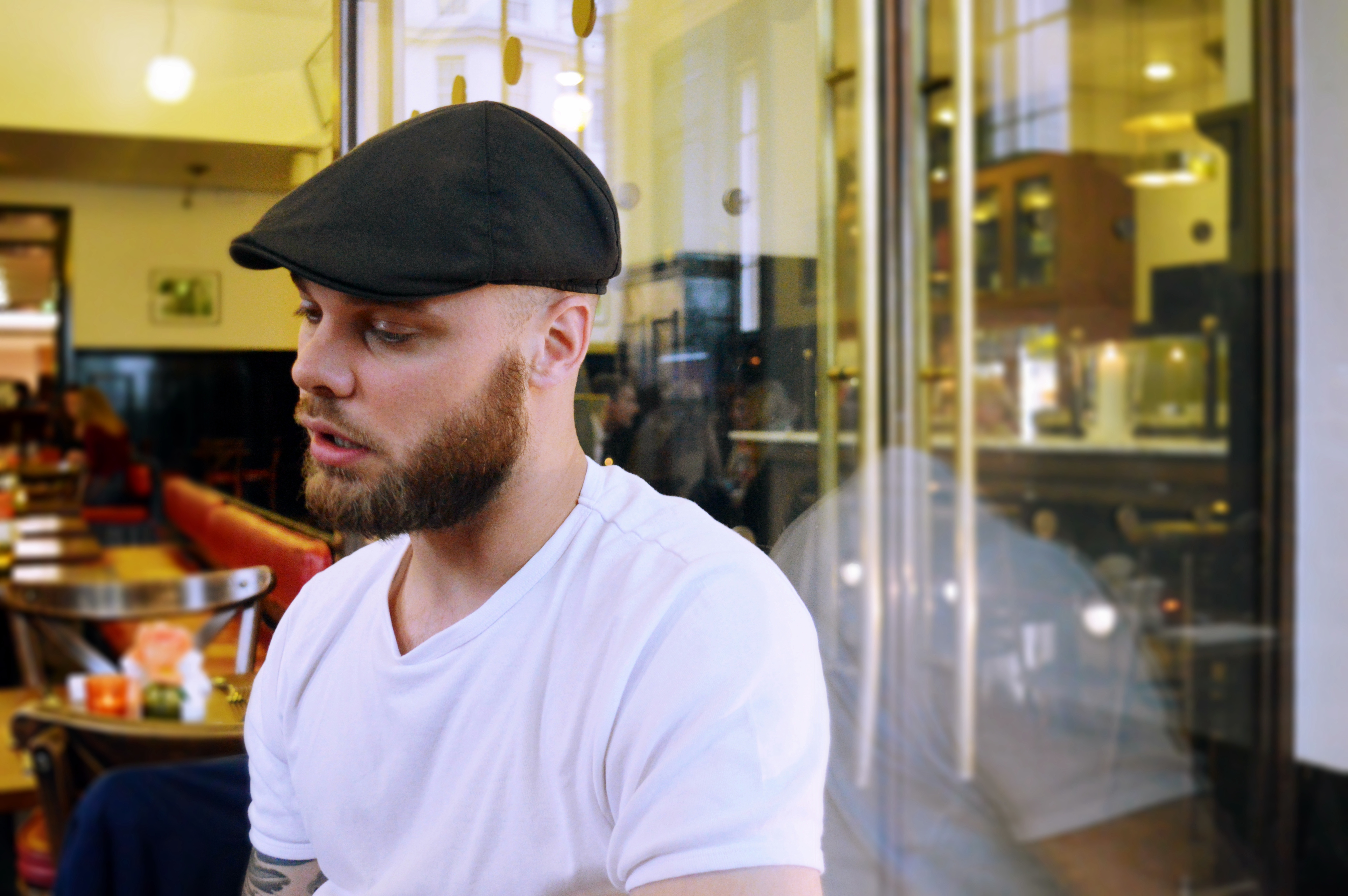
This week, following a £3 million revamp, the Jazz Café in Camden is marking its relaunch with a showcase led by the progressive jazz label 22a. With a diverse line-up featuring special guests IG Culture, Al Dobson Jr, Reginald Omas Mamode IV, Jeen Bassa and the Ruby Rushton ensemble. gal-dem gratefully grabbed the three c’s (cuppa, cake & a chat) with label founder and member Tenderlonious in anticipation of the occasion.
gal-dem: Where did you grow up and how did you get into jazz?
Tenderlonious: I moved around Europe as child. I went from a Montessori school, which encouraged free, play-based learning to a strict British boarding school, institution that as a teenager I found very restrictive.
I came to London at 17 and had a DJ residency in Brixton playing drum and bass every Thursday night. I grew up listening to house music, stealing my dad’s tapes. Then I got into hip-hop, particularly Slum Village and I started producing – sampling old vinyl in hip-hop beats and subsequently grime beats. It was through sampling old jazz records that I discovered the sax. I started off renting one and practising, then after grafting as a builder I managed to save up enough money to buy a soprano sax that I had admired for a long time in a music shop.
How did you learn to play the saxophone? Did someone teach you or were you self-taught?
I was working as a runner at a post-production studio, which had soundproof rooms for recording voiceovers. I took advantage of the facilities and would get up at 5AM and practise for hours before work, in my lunch break and after work.
I then hooked up with a tutor called Pat Grumley and it was a good time in my life to meet someone like him. He gave me a lot of guidance.He was a practising Buddhist and although I didn’t practise religiously, I participated and learnt a lot from him. Pat was prolific in his own sense, he was Ronnie Scott’s deputy back in the day but he didn’t have any students at the time so we got really close. He saw that I was making quick developments and how much I was committed to practising and being self-taught so he took me under his wing and mentored me.
Our cups and chocolate fudge cake arrive.
What kind of tea are you sipping?
I like Manuka Honey and Rooibos Tea, it’s good for dry and sore throats after playing for long periods.
The jazz scene has become quite elitist. How were you able to hone your skills being self-taught as opposed to being taught in a conservatoire?
Sadly, it has become that and I think that was an issue for me as well, which is why I was so adamant about being self-taught. Unfortunately Pat passed away very suddenly but after he died, a few of his associates including Jean Toussaint, Mornington Locket and Tim Whitehead reached out to me and offered their support. They were aware that Pat mentored me so they gave me a few lessons.
You probably stood out from their conventional jazz students…
Yeah I suppose, I wasn’t “bougie”. They knew I had a different approach. It’s become a curricular activity, it’s become something where you have to have certificate to be a jazz musician.
It also seems to have changed in “colour” too, that there’s been a visible change as well as a class shift which is a common theme in the development of popular culture. What are your thoughts on this shift?
It has changed; it’s become an institutional thing. Before, it was about expression, it was about people coming from hardship, or situations where they didn’t really have an opportunity to express themselves or have a voice in any other capacity other than having musical instrument in front of them, in jazz clubs. So for black jazz musicians in the 1950’s and 60’s, which is the time that I love, John Coltrane, Charlie Parker, Thelonious Monk, Tenderlonious – lonious stems from Thelonious….
Is that where the name comes from?
Tenderlonious was given to me. It comes from my constant drive to play and study and learn about jazz on my own terms and understanding the back-stories for some of these guys. I can hear their voices in the music; I’m not interested in the technical side but what’s behind the expression. Why is that voice so appealing to me? Why do I connect with it? Why does it make me wanna cry, get goosebumps and stuff?
I really looked into these guys. I already felt connected to them but learning about their lives was really important. Obviously looking at what was going on in America at that time, culturally, racially with segregation and how having a voice was life saving to them. Being able to express themselves where there was no rules or regulations. I felt that passion, intensity and energy. I can relate some of their feelings to my own issues growing up, feeling misplaced.
Do you think that adversity comes hand in hand with the music? How do you think their sound differs from some of the elite, privileged jazz musicians around today?
You don’t necessarily have to go through hardship to be able to express yourself, but I can usually hear a difference between real jazz musicians and “studied” jazz musicians through tone. Tonality is the key. A lot of guys who have studied jazz at college often sound very clean.
Transcription is a big focus of the universities and learning how to play like other people. It drives me mad. If you’re repeating history and just imitating all the while then there’s no development. It feels stagnant and actually disrespectful. It’s like taking someone else’s voice and passing it off as your own.
What is 22a trying to do that is unique and different?
I guess we’re honest and we’re ourselves. I can’t deny the fact that I’m inspired by all these guys, but I’m not only inspired by esteemed jazz musicians, I’m inspired by normal people.
Who are your inspirations?
It’s hard to break down, it changes day to day, but in terms of musicians, I’m inspired by John Coltrane, Yusef Lateef, Wayne Shorter, Herbie Hancock, Miles Davis, Booker Ervin – predominantly the East Coast scene of the 60s.
I’m also inspired by Charles Mingus who was double bass player; quite politically outspoken and downtrodden. I’m attracted to his large presence and can identify with his wildness, the feral aspects of his music.
Outside of jazz my father is my inspiration. He’s old school, humble and chivalrous.
Did your dad introduce you to jazz music?
No, my dad is very different to me. My dad is a very intelligent man with great taste and he’s a great cook. I’ve recently started to appreciate him a lot more, as I’ve grown up. Other than that my friends inspire me, the guys that I work alongside.
Tell us more about them and how you all came together.
Mo Kolours is the oldest of the Deenamode brothers (Jeen Bassa, Reginald & Mo). I met Mo through Paul White [Danny Brown producer] who I used to play the saxophone for. Through Paul, I met Mo Kolours as they were on the same label and then I met Al Dobson Jr through the Deenamode brothers who lived with him. I knew Henry Wu separately from a music session we did together.
We just started chillin’; we all had a similar vibe. [Despite what might have been previously implied in other press], I’ve never lived in Peckham; I’m not affiliated with the Peckham scene. I might chill there and pass through but 22a is my house number in Woking where I live.
I wanted us to release something independently and suggested putting out a record with some money I had saved. So in 2013 Al Dobson and I just did it and it grew from there. It’s more of a movement/collective rather than a record label. I’m not looking to sign up the next thing; I’m just working with who I know.
We recorded an album in 2011 which was independently released last year, rather than through another label. Ownership is key; I need to quality control how the music is presented and who it’s presented to. If I can control that as much as I can, it means that I can help shape the sound that I want 22a to represent. We put out quite an eclectic mix of music; it’s diverse.
I’m at the helm of the label but I’ve got all these guys around me who inspire me. We remain as a clique, which is why you don’t see too many others coming through 22a.
So finally, if someone hadn’t heard any 22a records, what do you think would be three good introductory tracks that exemplify who you are?
That is a very hard question, as I like them all… [Long pause]
If I really had to choose three examples then I’d probably recommend:
1) Jean Bassa – Latin Fingers
2) Ruby Rushton – Two For Joy (Ruby Rushton was my Grandma’s name)
3) Dennis Ayler – Ms Chambers
Check out the 22a Label Showcase tomorrow night at the Jazz Café.
Tickets available here.

